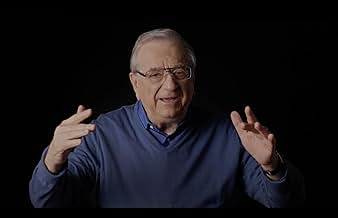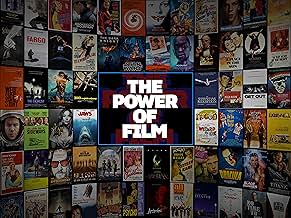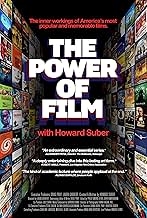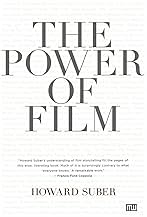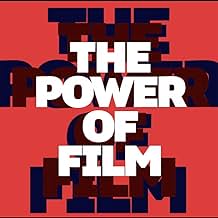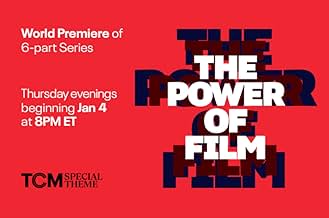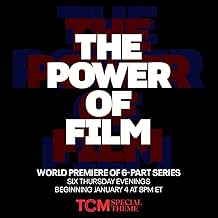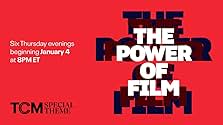Dives deep into the art of storytelling by examining the defining principles and inner workings of the most popular and memorable American films of all time.Dives deep into the art of storytelling by examining the defining principles and inner workings of the most popular and memorable American films of all time.Dives deep into the art of storytelling by examining the defining principles and inner workings of the most popular and memorable American films of all time.
- Star
Browse episodes
Featured reviews
A collection of movie clips overlaid by narration which is shallow, says pretty much nothing of value and often contradicts itself. The professor will name a "pattern" (usually the vaguest possible theme like "family") and then proceed to illustrate it with examples of movies, hilariously including some, which do not actually feature the stated "pattern" at all.
You are better off watching amateur film montages on youtube, at least they focus on the movies themselves and do not add pretentious, yet meaningless voiceover.
The attempted analysis is very superficial and sometimes almost sounds like a parody. Like this gem of deep thinking: "It was a fatal accident, so it must have something to do with fate". Definitely a fine example of "those who cannot do, teach".
You are better off watching amateur film montages on youtube, at least they focus on the movies themselves and do not add pretentious, yet meaningless voiceover.
The attempted analysis is very superficial and sometimes almost sounds like a parody. Like this gem of deep thinking: "It was a fatal accident, so it must have something to do with fate". Definitely a fine example of "those who cannot do, teach".
Wow.
This documentary gives us the screenwriting essentials. If you are a serious storyteller, it's a "must see.".
UCLA Professor Howard Suber gifts us with wisdom, from a lifetime of teaching graduate level screenwriting, at the top film school in the world.
Perfectly edited for the general public.
In Prof. Suber's honor, UCLA film students coined the term "HOSH Pivot." Which is an acronym for "Howard Suber's One Hour Pivot," spelled backwards. HOSH means the plot takes a dramatic turn, one hour into the film. Which is a key structure of every great film. Once you've a created a new vocabulary word, you're established as a historical figure.
This documentary is a treasure. Which should be replayed again and again.
This documentary gives us the screenwriting essentials. If you are a serious storyteller, it's a "must see.".
UCLA Professor Howard Suber gifts us with wisdom, from a lifetime of teaching graduate level screenwriting, at the top film school in the world.
Perfectly edited for the general public.
In Prof. Suber's honor, UCLA film students coined the term "HOSH Pivot." Which is an acronym for "Howard Suber's One Hour Pivot," spelled backwards. HOSH means the plot takes a dramatic turn, one hour into the film. Which is a key structure of every great film. Once you've a created a new vocabulary word, you're established as a historical figure.
This documentary is a treasure. Which should be replayed again and again.
I am finding this documentary to be very powerful and enjoyably enlightening. Howard Suber has taught film classes at UCLA for 50 years, and he offers insights into writing, directing, characterization, fate and destiny, heroes and villains.
There are numerous clips from all kinds of movies as Professor Suber himself talks directly to the camera about whatever the subject may be. I was a TCF (telecommunications and film) major myself while in college in the mid-1970s, and I had some excellent professors, but listening to this man actually makes me want to take a class from him even today.
This is a superb documentary on TCM and hosted by Dave Karger, who is able to speak to director of the series, Laura Gabbert, and to writer, Doug Pray, both of whom had Suber as a professor in college. Simply well done all around.
There are numerous clips from all kinds of movies as Professor Suber himself talks directly to the camera about whatever the subject may be. I was a TCF (telecommunications and film) major myself while in college in the mid-1970s, and I had some excellent professors, but listening to this man actually makes me want to take a class from him even today.
This is a superb documentary on TCM and hosted by Dave Karger, who is able to speak to director of the series, Laura Gabbert, and to writer, Doug Pray, both of whom had Suber as a professor in college. Simply well done all around.
I would much rather listen to Spielberg or Scorcese discuss the power of film. I felt that Dr. Suber just states the obvious. There weren't many unique insights.
For example, he'll discuss the story structure of a particular film verbatim and explain how common writing threads are used in various films. I found myself repeatedly saying, so? I'm watching this episodically on TCM. So far, episode two is the best but not enough to recommend it. I see it has received an 8.3 rating on IMDB which is very high marks, so I must be in the minority on this. See for yourself as it is watchable and has moments.
For example, he'll discuss the story structure of a particular film verbatim and explain how common writing threads are used in various films. I found myself repeatedly saying, so? I'm watching this episodically on TCM. So far, episode two is the best but not enough to recommend it. I see it has received an 8.3 rating on IMDB which is very high marks, so I must be in the minority on this. See for yourself as it is watchable and has moments.
Mind-numbingly boring and shallow, Professor Blabbermouth takes us into the world of film with nothing new to say while stating the incredibly obvious. If we only had to rely on what this guy says, I doubt anyone other than his immediate family would make it through this (I dropped out after one episode). There are a million film clips that prop up this bore, but they aren't enough to add up to entertainment. The first episode is completely all over the place and makes not much of a point, and the point made isn't much and hardly warranted forty minutes to tell. He should just write down his point on a 3X5 index card and let viewers watch a real movie.
Details
- Color
Contribute to this page
Suggest an edit or add missing content

